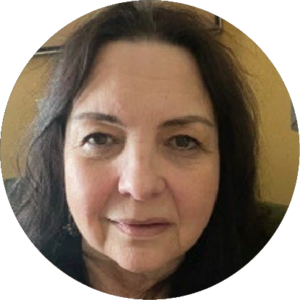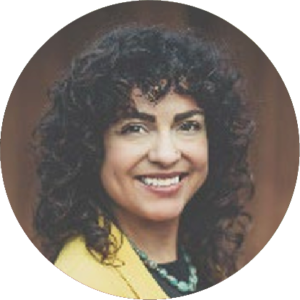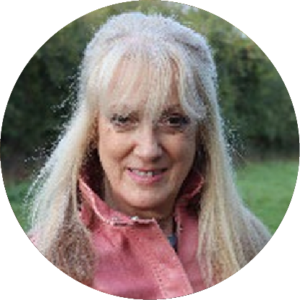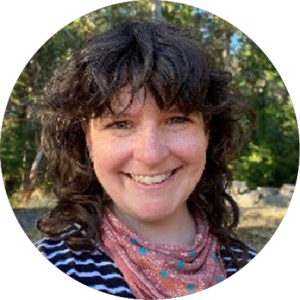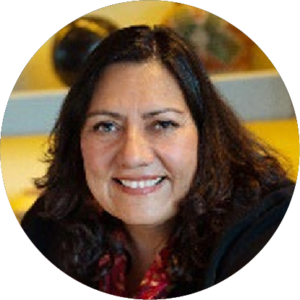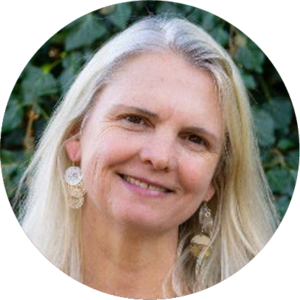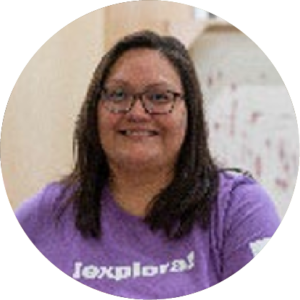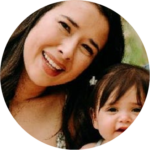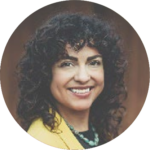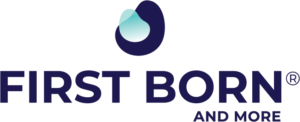
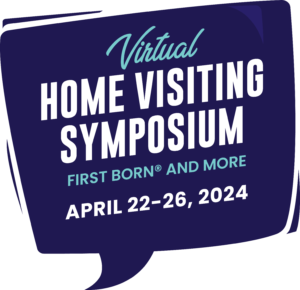
The First Born® and More Home Visiting Symposium brings together professionals, researchers, and policymakers in the fields of home visiting and early childhood education and development. The symposium provides a forum for sharing information and best practices, and this year will focus on PLAY and its importance in early development.
The symposium is free and will provide attendees with the opportunity to learn from experts in the field and gain new insights and strategies for supporting families and building strong communities. The First Born® and More Home Visiting Symposium is the perfect opportunity to learn, grow, and make a difference.
Scroll down for session descriptions
Press the “REGISTER HERE!” button or scan the QR code.


2024 Virtual Home Visiting Symposium

The First Born® and More Home Visiting Symposium is an annual event that brings together professionals, researchers, and policymakers in the field of home visiting and early childhood education and development. The symposium provides a forum for sharing information and best practices, and this year will focus on Home Visiting with an Equity Lens.
The symposium is free and will provide attendees with the opportunity to learn from experts in the field, connect with colleagues, and gain new insights and strategies for supporting families and building strong communities. The First Born® and More Home Visiting Symposium is the perfect opportunity to learn, network, and make a difference.
Press the “REGISTER HERE!” button or scan the QR code.


Symposium Schedule
APRIL 22 – 26, 2024
APRIL
22
MONDAY
12:00-1:00PM
MDT
Early Childhood-Parent Play: Paths to Healthy, Secure Attachments
Learn new ideas to help caregivers include more play in their everyday interactions. Find out how play supports building healthy, secure attachments between parents/caregivers and children. Dr. Solchany will provide tools for engaging caregivers to better reflect on their interactions and to use their face time with more intention and awareness.
APRIL
23
TUESDAY
12:00-1:00PM
MDT
Playfulness for Parental Sanity
Play is a child’s language, but it’s not just children who need to play. Bringing play into caregiving can help with tough day-to-day moments, strengthen bonds within the family, and even help to maintain parental sanity! Mireya will show how you and your families can welcome play into adult life, what the play personalities are, and why play is a wellknown antidote to burnout in helping work like home visiting and caregiving.
APRIL
23
TUESDAY
3:00-4:00PM
MDT
Dance and Movement is Play!
Dance is a playful way to support the connection between caregivers and their little ones. This kind of movement does not have to be a formal lesson, nor do you need to be a “good dancer”! It should be joyful, engaging, fun, and stress-free. This is something home visitors can use as an activity to uplift young children and their families–even babies love to be held and dance. This interactive session with Natane will have you moving and laughing!
APRIL
24
WEDNESDAY
12:00-1:00PM
MDT
The Brain That Loves to Play
Dr. Harding will share in simple terms how the latest evidence-based brain research breaks down the division between play and learning and explains how billions of neurons bustle across the highways of our brains, choreographing the body’s thoughts and movements. Through short videos you will see how young children’s posture, body language, and facial movements change as they play and the stunning impact that has on the brain in terms of creativity and imagination. Actionable takeaways will be highlighted for sharing with families.
APRIL
24
WEDNESDAY
3:00-4:00PM
MDT
Play: The Brain Architect
When was the last time you played? Whether it was last week or last year, we all know how good play feels. It turns out, play is good for our brains too. Play is a fundamental part of our biology and essential to children’s brain development. Learn how to support a play environment that allows young children to explore the edge of their developing abilities. In turn, you’ll be able to help caregivers understand that playing with their child is one of the most powerful ways to support the child’s connection between their brain, body, and emotions.
APRIL
25
THURSDAY
12:00-1:00PM
MDT
Go with the Glow – Play and Beyond
We know that play supports healthy early development, builds relationships, develops key skills, and can even reduce stress. What we may not know is that play also helps build confidence, identity, and allows opportunities to take risks. Learn how to encourage caregivers of ALL children, including children who have developmental disabilities, to not only advocate for children but teach children to be advocates for themselves, allowing them to take the risks they need to be happy, confident, thriving children through opportunities to PLAY, PLAY, AND PLAY!
APRIL
25
THURSDAY
3:00-4:00PM
MDT
Rough and Tumble Play Through a Social-Emotional Lens
How does rough and tumble play build social-emotional skills? Children learn to negotiate, take turns, establish boundaries, and cooperate with others. Learn how to help caregivers feel comfortable providing opportunities for joyful and safe rough and tumble play in ways that meet the natural appetites of young children for risk, adventure, physical challenge, and connection to others.
APRIL
26
FRIDAY
12:00-1:00PM
MDT
Playful Perspectives: Unpacking Gender and Cultural Influences in Early Childhood Play
Explore how gender and culture impact young children and their play! Through engaging discussions, hands-on activities, and reflective exercises, participants will gain tools and strategies to create inclusive play environments that honor each child’s unique identity and play preferences. Come along on this journey to cultivate a sense of playfulness that goes beyond societal expectations, fostering a world where every child feels empowered to play in a way that feels right for them.
APRIL
26
FRIDAY
3:00-4:00PM
MDT
Learning Math and Science Through Play
Play is an essential building block for all kinds of learning including math and science which is accessible even for very young children. Using simple everyday objects and materials, Victoria will demonstrate how to help children develop a strong appetite for STEM learning. Engage in a fun, thought-provoking session full of science activities integrated with literature and math which you can share with families in your home visits. We’ll take an inquiry approach to learning, actively exploring physical materials and questions to facilitate learning that will aid home visitors and caregivers in supporting science learning and literacy at home.
Press the “REGISTER HERE!” button or scan the QR code.


Symposium Schedule
APRIL 22 – 26, 2024
APRIL
22
MONDAY
12:00-1:00PM
MDT
Early Childhood-Parent Play: Paths to Healthy, Secure Attachments
Learn new ideas to help caregivers include more play in their everyday interactions. Find out how play supports building healthy, secure attachments between parents/caregivers and children. Dr. Solchany will provide tools for engaging caregivers to better reflect on their interactions and to use their face time with more intention and awareness.
APRIL
23
TUESDAY
12:00-1:00PM
MDT
Playfulness for Parental Sanity
Play is a child’s language, but it’s not just children who need to play. Bringing play into caregiving can help with tough day-to-day moments, strengthen bonds within the family, and even help to maintain parental sanity! Mireya will show how you and your families can welcome play into adult life, what the play personalities are, and why play is a wellknown antidote to burnout in helping work like home visiting and caregiving.
APRIL
23
TUESDAY
3:00-4:00PM
MDT
Dance and Movement is Play!
Dance is a playful way to support the connection between caregivers and their little ones. This kind of movement does not have to be a formal lesson, nor do you need to be a “good dancer”! It should be joyful, engaging, fun, and stress-free. This is something home visitors can use as an activity to uplift young children and their families–even babies love to be held and dance. This interactive session with Natane will have you moving and laughing!
APRIL
24
WEDNESDAY
12:00-1:00PM
MDT
The Brain That Loves to Play
Dr. Harding will share in simple terms how the latest evidence-based brain research breaks down the division between play and learning and explains how billions of neurons bustle across the highways of our brains, choreographing the body’s thoughts and movements. Through short videos you will see how young children’s posture, body language, and facial movements change as they play and the stunning impact that has on the brain in terms of creativity and imagination. Actionable takeaways will be highlighted for sharing with families.
APRIL
24
WEDNESDAY
3:00-4:00PM
MDT
Play: The Brain Architect
When was the last time you played? Whether it was last week or last year, we all know how good play feels. It turns out, play is good for our brains too. Play is a fundamental part of our biology and essential to children’s brain development. Learn how to support a play environment that allows young children to explore the edge of their developing abilities. In turn, you’ll be able to help caregivers understand that playing with their child is one of the most powerful ways to support the child’s connection between their brain, body, and emotions.
APRIL
25
THURSDAY
12:00-1:00PM
MDT
Go with the Glow – Play and Beyond
We know that play supports healthy early development, builds relationships, develops key skills, and can even reduce stress. What we may not know is that play also helps build confidence, identity, and allows opportunities to take risks. Learn how to encourage caregivers of ALL children, including children who have developmental disabilities, to not only advocate for children but teach children to be advocates for themselves, allowing them to take the risks they need to be happy, confident, thriving children through opportunities to PLAY, PLAY, AND PLAY!
APRIL
25
THURSDAY
3:00-4:00PM
MDT
Rough and Tumble Play Through a Social-Emotional Lens
How does rough and tumble play build social-emotional skills? Children learn to negotiate, take turns, establish boundaries, and cooperate with others. Learn how to help caregivers feel comfortable providing opportunities for joyful and safe rough and tumble play in ways that meet the natural appetites of young children for risk, adventure, physical challenge, and connection to others.
APRIL
26
FRIDAY
12:00-1:00PM
MDT
Playful Perspectives: Unpacking Gender and Cultural Influences in Early Childhood Play
Explore how gender and culture impact young children and their play! Through engaging discussions, hands-on activities, and reflective exercises, participants will gain tools and strategies to create inclusive play environments that honor each child’s unique identity and play preferences. Come along on this journey to cultivate a sense of playfulness that goes beyond societal expectations, fostering a world where every child feels empowered to play in a way that feels right for them.
APRIL
26
FRIDAY
3:00-4:00PM
MDT
Learning Math and Science Through Play
Play is an essential building block for all kinds of learning including math and science which is accessible even for very young children. Using simple everyday objects and materials, Victoria will demonstrate how to help children develop a strong appetite for STEM learning. Engage in a fun, thought-provoking session full of science activities integrated with literature and math which you can share with families in your home visits. We’ll take an inquiry approach to learning, actively exploring physical materials and questions to facilitate learning that will aid home visitors and caregivers in supporting science learning and literacy at home.
Press the “REGISTER HERE!” button or scan the QR code.


Symposium Schedule
APRIL 22 – 26, 2024
APRIL
22
MONDAY
12:00-1:00PM
MDT
Early Childhood-Parent Play: Paths to Healthy, Secure Attachments
Learn new ideas to help caregivers include more play in their everyday interactions. Find out how play supports building healthy, secure attachments between parents/caregivers and children. Dr. Solchany will provide tools for engaging caregivers to better reflect on their interactions and to use their face time with more intention and awareness.
Dr. JoAnne Solchany
APRIL
23
TUESDAY
12:00-1:00PM
MDT
Playfulness for Parental Sanity
Play is a child’s language, but it’s not just children who need to play. Bringing play into caregiving can help with tough day-to-day moments, strengthen bonds within the family, and even help to maintain parental sanity! Mireya will show how you and your families can welcome play into adult life, what the play personalities are, and why play is a wellknown antidote to burnout in helping work like home visiting and caregiving.
APRIL
23
TUESDAY
3:00-4:00PM
MDT
Dance and Movement is Play!
Dance is a playful way to support the connection between caregivers and their little ones. This kind of movement does not have to be a formal lesson, nor do you need to be a “good dancer”! It should be joyful, engaging, fun, and stress-free. This is something home visitors can use as an activity to uplift young children and their families–even babies love to be held and dance. This interactive session with Natane will have you moving and laughing!
APRIL
24
WEDNESDAY
12:00-1:00PM
MDT
The Brain That Loves to Play
Dr. Harding will share in simple terms how the latest evidence-based brain research breaks down the division between play and learning and explains how billions of neurons bustle across the highways of our brains, choreographing the body’s thoughts and movements. Through short videos you will see how young children’s posture, body language, and facial movements change as they play and the stunning impact that has on the brain in terms of creativity and imagination. Actionable takeaways will be highlighted for sharing with families.
APRIL
24
WEDNESDAY
3:00-4:00PM
MDT
Play: The Brain Architect
When was the last time you played? Whether it was last week or last year, we all know how good play feels. It turns out, play is good for our brains too. Play is a fundamental part of our biology and essential to children’s brain development. Learn how to support a play environment that allows young children to explore the edge of their developing abilities. In turn, you’ll be able to help caregivers understand that playing with their child is one of the most powerful ways to support the child’s connection between their brain, body, and emotions.
APRIL
25
THURSDAY
12:00-1:00PM
MDT
Go with the Glow – Play and Beyond
We know that play supports healthy early development, builds relationships, develops key skills, and can even reduce stress. What we may not know is that play also helps build confidence, identity, and allows opportunities to take risks. Learn how to encourage caregivers of ALL children, including children who have developmental disabilities, to not only advocate for children but teach children to be advocates for themselves, allowing them to take the risks they need to be happy, confident, thriving children through opportunities to PLAY, PLAY, AND PLAY!
APRIL
25
THURSDAY
3:00-4:00PM
MDT
How does rough and tumble play build social-emotional skills? Children learn to negotiate, take turns, establish boundaries, and cooperate with others. Learn how to help caregivers feel comfortable providing opportunities for joyful and safe rough and tumble play in ways that meet the natural appetites of young children for risk, adventure, physical challenge, and connection to others.
APRIL
26
FRIDAY
12:00-1:00PM
MDT
Playful Perspectives: Unpacking Gender and Cultural Influences in Early Childhood Play
Explore how gender and culture impact young children and their play! Through engaging discussions, hands-on activities, and reflective exercises, participants will gain tools and strategies to create inclusive play environments that honor each child’s unique identity and play preferences. Come along on this journey to cultivate a sense of playfulness that goes beyond societal expectations, fostering a world where every child feels empowered to play in a way that feels right for them.
APRIL
26
FRIDAY
3:00-4:00PM
MDT
Learning Math and Science Through Play
Play is an essential building block for all kinds of learning including math and science which is accessible even for very young children. Using simple everyday objects and materials, Victoria will demonstrate how to help children develop a strong appetite for STEM learning. Engage in a fun, thought-provoking session full of science activities integrated with literature and math which you can share with families in your home visits. We’ll take an inquiry approach to learning, actively exploring physical materials and questions to facilitate learning that will aid home visitors and caregivers in supporting science learning and literacy at home.
Press the “REGISTER HERE!” button or scan the QR code.

Staying Healthy
Information about how to stay healthy during pregnancy, including COVID-19, exercise, stress and depression, dental care, sex during pregnancy and more:
Things to Avoid (reducing the risk of birth defects and other things to avoid)
Information about how alcohol, drugs (prescription and illegal), smoking, caffeine, and other things can affect your pregnancy and baby:
Warning Signs
Information on conditions to pay attention to such as fatigue and nausea, anemia, preeclampsia, gestational diabetes, Rh compatibility and more:
Nutrition
Fetal Development
Information on your baby’s week-by-week development during pregnancy:



